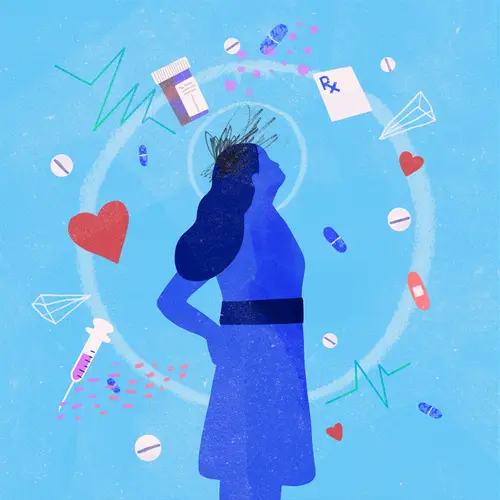Whether you are experiencing painful tender points, deep muscle pain, chronic headaches, unending back pain, or neck pain, you know how fibromyalgia feels. People with fibromyalgia experience pain in ways no one else can really understand.
But what is pain? What causes it? Is fibromyalgia pain acute (short term) or chronic (long term)? And what impact does fibromyalgia pain have on every part of your life?
What Is Pain?
Pain is an uncomfortable feeling in your body that warns you something is wrong. While this feeling is the body's way of alerting your brain that there is a problem, after it goes on for weeks or even months, pain becomes a part of your very existence. At that point, not only is pain a symptom that something is wrong, but pain becomes the disease itself.
What Is Fibromyalgia-Related Pain?
Fibromyalgia-related pain is pain that causes you to ache all over. You may have painful "tender points," places on your body that hurt no matter what medication you take. Your muscles may feel like they have been overworked or pulled even though you haven't exercised. Sometimes, your muscles will twitch. Other times they will burn or ache with deep stabbing pain. Some patients with fibromyalgia have pain and achiness around the joints in their neck, shoulders, back, and hips. This kind of pain makes it difficult to sleep or exercise.
How Does the Brain Perceive Pain?
There are over 20 different kinds of nerve endings in your skin that tell you if among other sensations something is hot, cold, or painful. These nerve endings convert mechanical, thermal, or chemical energy into electrical signals that convey information to the brain and spinal cord -- also known as the central nervous system or CNS. These signals travel to areas of your CNS where you perceive the stimuli as the sensations you actually feel -- sensations such as searing, burning, pounding, or throbbing.
Research suggests that the pain associated with fibromyalgia is caused by a "glitch" in the way the body processes pain. This glitch results in a hypersensitivity to stimuli that normally are not painful. According to the National Institute of Arthritis and Musculoskeletal and Skin Diseases (NIAMS), research has shown that people with fibromyalgia have reduced blood flow to parts of the brain that normally help the body deal with pain.
Is Fibromyalgia Pain Acute or Chronic?
Acute pain comes on suddenly and can be severe. For instance, think about how suddenly your back can ache after you've bent down to lift a heavy package or a child. Yet, in more than 80% of cases, acute pain goes away in about two weeks. It runs its course and disappears as the problem is relieved. If your pain from a strained muscle lasts only a few days or weeks, it is considered acute.
Chronic pain is pain that lasts much longer than someone would normally expect based on the original problem or injury. When pain becomes chronic, our bodies react in several ways. Chronic pain may be associated with abnormalities in brain chemicals, low energy, mood disorders, muscle pain, and impaired mental and physical performance. As neurochemical changes in your body increase your sensitivity to pain, the chronic pain worsens. You begin to have pain in other parts of the body that do not normally hurt.
What Are Fibromyalgia's Tender Points?
Tender points are localized areas of tenderness typically above muscles, tendons or bones-- that hurt when pressed. Tender points are not areas of deep pain. Instead, they are superficial areas seemingly under the surface of the skin, such as over the elbow or shoulder. People with fibromyalgia often have 11 or more out of a possible 18 tender points.
How Does the Chronic Pain of Fibromyalgia Impact Lives?
Fibromyalgia's chronic pain seems unending. The ongoing headaches, neck pain, aching joints, and painful tender points prevent sleep, causing you to awaken frequently at night. The chronic sleep disorder of fibromyalgia results in increased achiness, morning stiffness, and daytime fatigue. While you want to exercise and be active, you may suffer with foot pain, hip pain, knee pain, or other painful joints. All of these make it next to impossible to exercise with friends or to play with your kids or grandkids.
The constant pain causes more irritation and difficulty dealing with others, including family members, friends, and people at work. For women with fibromyalgia who must take care of family members and work full-time, coping with pain is a challenge. If there is undiagnosed pain and no effective treatment or medication for the fibromyalgia, the overwhelming feelings can lead to irritability, exhaustion, anxiety, social isolation, and depression.
How Can I Get Relief for Undiagnosed Fibromyalgia Pain?
Talk to your doctor about your symptoms of fibromyalgia, including the body aches, aching joints, painful tender points, and fatigue. With a multifaceted program of effective drugs, alternative therapies, psychotherapy, and mind/body remedies, you should be able to find good relief of symptoms and reclaim your active life again.

